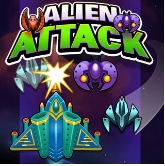Organ Donation: While People Die, A Search For A Better System
PORTLAND, OR – Last year, I won the lottery. Not the Megabucks or Powerball kind; one much more valuable. I received a new kidney.
I had spent five-and-a-half years in dialysis waiting for that day. Dialysis is a process by which a machine does what a kidney would do – cleaning your blood, removing toxins; keeping you alive. Dialysis, which involves sitting in a chair three times a week for periods of usually four or six hours, is not a pleasant experience.
After surgery – and to this day – I was thankful for many reasons, not the least of which was the fact that I would not be one of the 4,500 people who die every year while waiting for a matching organ to become available. Get all the latest information on what’s happening in your community by signing up for Patch’s newsletters and breaking news alerts
There were about 100,000 people on the waiting list for a kidney at the time – about double what the number had been a decade before – which meant about five percent of them would die. That’s about 13 people every day.
The number since then has grown.
As of April 2018, the number of people on the waiting list was creeping toward 115,000, 83 percent of whom are waiting for a kidney. Of those, more than 60 percent are 50-years-old and older while about 2,000 are children.
The reason such as a large majority are waiting for a kidney is that, unlike when other organs fail, kidney function can be replaced (by dialysis) in a way that other organs cannot.
READ A LETTER TO MY NEW KIDNEY
While the number of people on the list grew by about 14 percent from 2017 – mostly people waiting for a kidney – and the number of people who die while waiting has decreased recently, thousands will still be removed from the list because they have died.
Twenty people every day.
While that’s a disturbing number, it is even more surprising when you consider that more people than ever have received kidney transplants. In 2016, there 33,610 transplants in the United States. Last year there were 34,770.
The problem is a shortage of available organs.
While 95 percent of adults in the United States support organ donation, only 54 percent are actually signed up. Many of those who are signed up did so when they were getting their driver’s license, which means those organs won’t likely be available for decades.
The other thing to take into consideration is that only three out of every 1,000 people who die do so in a way that allows for their organs to be donated.
So, with a person being added to the waiting list every 10 minutes, experts agree there is a crisis. What they don’t agree on is what to do about it.
OPT-IN VS. OPT-OUT
“I’m convinced that we may always have a shortage,” the executive director of the Pacific Northwest Transplant Bank, Mike Seely told Patch about the seemingly ever-growing gap between people who need organs and the organs that are available for them.
Seely, whose organization oversees organ procurement for Oregon, southern Washington, and southwestern Idaho, has 32-years of experience working in the fields of organ procurement and transplant. While he believes the organ shortage isn’t going anywhere anytime soon, he does see hope on the horizon.
He points to advances in technology allowing organs to be kept alive longer as well as advances in genetics that will one day allow for organs to be grown.
While those two options are not going to bring any substantive relief in the short-term, much debate has centered around whether to change organ donation from being an opt-in situation where people have to choose to become a donor – often when they get their driver’s license – to an opt-out – also called “presumed consent” – where people are automatically considered donors unless they choose to opt-out of the system.
“I don’t know that this is the ultimate solution, but if it helps save at least one more life, isn’t it worth exploring,” a lawyer and kidney transplant recipient, Ken Zuckerbrot, tells Patch. “There has to be a better way than there is now.
“Eight thousand deaths a year is too many deaths.”
Zuckerbrot received his kidney from a living donor who had lost a relative to kidney failure and feels that the best way he can repay that generosity is by doing what he can to help others.
That is why he is working with the National Kidney Foundation Advocacy Group and others to explore ways to approach state legislatures to change local organ donation laws to allow for the opt-out option.
“It’s not a magic bullet. We have to try everything possible,” Zuckerbrot says. “People are willing to be donors. Many of them are not aware of the process, what’s involved.
“I just want to help save lives.”
Statistics cited by the United States Government’s website on organ donation seem to support Zuckerbrot’s contention that there is room for growth in the donor pool with barely half of all Americans signed up to donate. However, most Americans say they support organ donations.
“The question is how do we get them to act on what they believe,” Zuckerbrot says.
Seely from the transplant bank says that it may not be that easy, that there are indications that switching to opt-out could result in fewer people registering to be donors. Over the years, he has testified before legislative committees exploring the issue, and he’s raised red flags.
He says that “one has to realize that many will believe that if everyone’s organs are to be used for transplantation, people are going to assume that there’s an element of reciprocity,” that much as they will be giving up their organs there will be someone to give to them when they need an organ.
“That just might not be the case,” he says.
A bigger issue, Seely says, is that the United States may not culturally be in a place where people would support such a change.
“People like to say no,” he says. “They don’t like the idea that once they die, their bodies will belong to the government. If they’re told that they have a chance to say no, they might look at the opportunity as, ‘I get to say no to something.’
“That could make a dire situation even more so. The model is one that would never work well in our country.”
Zuckerbrot concedes that there will be obstacles to overcome.
“It’s going to take a lot of education,” he says. “It’s not something that can happen around the country overnight. It’s going to take time. We need to start small, find some places to run some trials, spend as much time as possible educating people about what will be happening.
“See how it goes from there. But if we don’t try, we’ll never know.”
Zuckerbrot looks around the world and sees other countries taking that step.
Around two dozen countries in Europe are in some stage of considering or implementing a similar change. England is moving toward such a system that could be in place as early as April 2020.
As for the issue of education, Zuckerbrot points out that there have been two major public safety health education initiatives that have saved countless lives – telling people to stop smoking and getting them to wear seatbelts.
“Decades ago, most people thought you’d never be able to get Americans to stop smoking,” he says. “But many of them have.
“This could be more successful than the war on drugs.”
A DOCTOR’S VIEW
Dr. Raghav Wusirika is a nephrologist at Oregon Health & Science University who regularly sees kidney failure patients who are on dialysis – including me. He’s probably seen upward of 1,000 since he started.
“As many people receive kidney transplants, kidneys are rare,” he says. “Not everyone who needs one will get one, and it’s important that we help them keep an eye to the future.
“Once their kidney fails, it’s become a terminal event for them. The clock starts ticking.”
Wusirikia says that one of the hardest things is watching people who, despite getting close to qualifying for the wait list, can’t quite get there.
“Those are the ones who struggle the most,” he says. “Making the switch to get a lot more kidneys from the deceased list could help a lot of people.”
Even if a switch is made to make more organs available – donation advocates point out that, if organs are not damaged, one person can save eight lives through donation (heart, two lungs, two kidneys, pancreas, liver, intestines) – there are still other obstacles to overcome.
The United Network for Organ Sharing, the organization that coordinates transplants across the United States, last year voted to change how livers are allocated to address geographic disparities that result in many livers not becoming available to very sick people. Those changes are on hold pending the outcome of lawsuits challenging the changes.
UNOS’s other organ-specific committee are also looking to makes changes.
Meanwhile, Zuckerbrot looks at his own experience waiting for a transplant, the despair that he went through and comes up with a bottom line for why more needs to be done.
Click Here: United Kingdom Rugby Jerseys
“No one should go through what I went through, what you went through, what tens of thousands of others are going through,” he says. “We can make their lives easier.”
Photo via Shutterstock.
You May Also Like

Block Breaker: The Ultimate Puzzle Challenge
March 22, 2025
コンテナハウスの魅力と活用方法
March 14, 2025